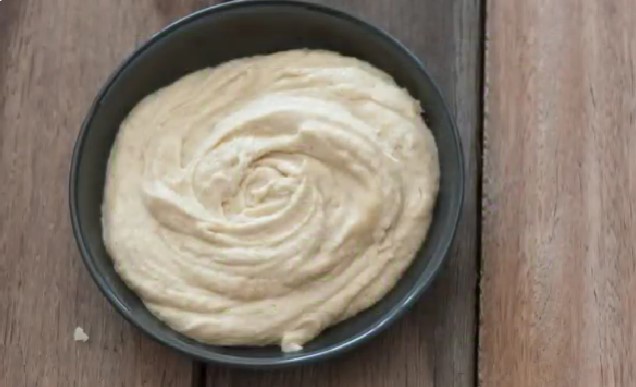Tahini Nutrition Facts
Tahini, a creamy paste made from ground sesame seeds, is not only a delicious addition to various dishes but also packs a nutritional punch. Its rich, nutty flavor complements a range of recipes, from savory hummus to sweet desserts. Beyond its taste, tahini offers numerous health benefits, making it a valuable ingredient for anyone looking to enhance their diet. In this detailed article, we’ll delve into the nutritional profile of tahini, its health benefits, and how to incorporate it into your meals. Read on to discover why tahini deserves a spot in your pantry.

Nutritional Profile of Tahini
Tahini is rich in several essential nutrients, providing a good mix of fats, protein, vitamins, and minerals.
- Calories: 1 tablespoon of tahini contains approximately 89 calories.
- Fat: It includes around 8 grams of fat, primarily healthy unsaturated fats, including omega-3 and omega-6 fatty acids.
- Saturated fat: 1.1 grams
- Monounsaturated fat: 3.5 grams
- Polyunsaturated fat: 3.5 grams
- Protein: Each tablespoon provides about 2.5 grams of protein, making it a decent plant-based protein source.
- Carbohydrates: Tahini contains around 3 grams of carbohydrates per tablespoon.
- Dietary fiber: 1.4 grams
Vitamins and Minerals
Tahini is packed with several vitamins and minerals, although the amounts can vary based on the sesame seeds used and the processing method.
- Thiamin (Vitamin B1): 13% of the recommended daily intake (RDI)
- Niacin (Vitamin B3): 4% of the RDI
- Folate (Vitamin B9): 4% of the RDI
- Manganese: 11% of the RDI
- Copper: 12% of the RDI
- Phosphorus: 11% of the RDI
- Iron: 14% of the RDI
- Calcium: 6% of the RDI
- Zinc: 10% of the RDI
Health Benefits of Tahini
Tahini is more than just a tasty condiment; it offers several health benefits due to its rich nutrient profile.
- Promotes Digestive Health: The dietary fiber in tahini supports digestive health and helps regulate cholesterol levels.
- Lowers Cholesterol: The healthy fats in tahini, particularly omega-3 and omega-6 fatty acids, can help reduce LDL cholesterol levels, lowering the risk of heart disease.
- Improves Heart Health: Omega-3 fatty acids in tahini may reduce the risk of irregular heartbeat, lower blood pressure, and prevent plaque buildup in arteries.
- Controls Blood Sugar: The omega-6 fatty acids in tahini may help control blood sugar levels, reducing the risk of diabetes.
- Fights Oxidative Stress: Tahini is rich in antioxidants, which can help reduce oxidative stress and protect against chronic diseases.
- Supports Bone Health: With its high content of phosphorus, manganese, and calcium, tahini can contribute to maintaining strong bones and preventing osteoporosis.
- Boosts Immune System: The zinc, selenium, iron, and copper in tahini enhance immune function by promoting the production of white blood cells and antibodies.
How to Incorporate Tahini into Your Diet
Tahini is versatile and can be used in various culinary applications:
- Hummus: Blend tahini with chickpeas, garlic, lemon, and olive oil for a classic hummus.
- Salad Dressing: Mix tahini with lemon juice, olive oil, and a bit of water for a creamy salad dressing.
- Sandwich Spread: Use tahini as a spread for sandwiches or wraps.
- Sauces and Dips: Combine tahini with herbs and spices to create flavorful dips or sauces for vegetables and meats.
- Baked Goods: Add tahini to cookies, brownies, or cakes for a nutty flavor boost.

Frequently Asked Questions
Is tahini good for weight loss?
Tahini can be included in a weight loss diet because it is nutrient-dense and helps promote satiety, which can prevent overeating. However, it is also high in calories, so portion control is important.
Can tahini cause allergies?
Yes, tahini is made from sesame seeds, which are a common allergen. Symptoms of a sesame allergy can range from mild itching to severe anaphylaxis. If you have a known sesame allergy, you should avoid tahini.
How should tahini be stored?
Unopened tahini can be stored at room temperature. Once opened, it is best kept in the refrigerator to prevent the oils from becoming rancid. Always stir tahini before use, as natural separation occurs.
Tahini is a nutritious and versatile food that can enhance both the flavor and nutritional value of many dishes. By understanding its benefits and how to use it, you can make the most of this delicious sesame paste in your diet.





